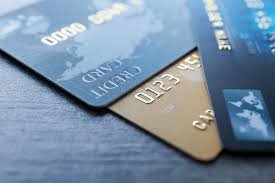During financial emergencies or economic challenges, a credit card can be utilized as an all-in-one funding instrument. However, using the card without knowing all the essential facts about it and irresponsible credit behaviors can hurt the cardholder’s creditworthiness by affecting their credit score negatively.
On the other hand, borrowers can use the most out of a card once they know the credit card meaning in its entirety, its various elements and aspects, and how to use it appropriately. Here are five interesting and useful facts about credit cards that can help with smart usage –
1. The higher credit limit is beneficial
Some users can be of the notion that owning a higher credit limit can lead to excessive expenses on the card. However, it can turn out to be an advantage if appropriately managed.
Higher limit helps to keep one’s credit utilization ratio in check, which can boost the CIBIL score of borrowers. Individuals should always try to keep this ratio below 30% as it keeps one’s repayment capacity high and is desirable by lenders.
This ratio denotes the total percentage of credit utilized as against its availability. For example, if the credit card limit is Rs.50,000 and the total expense made is Rs.10,000, then the credit utilization ratio would be 20%. That means the user of this card has 80% credit available.
2. Complete avoidance of interest payment is possible
Credit cards in India come with several features as well as varying interest rates. Nonetheless, irrespective of how high the credit card interest rate is, individuals, do not necessarily need to pay it if the bill is paid in full every month.
On the other hand, with partial payments, individuals not only have to pay interest on the entire outstanding but also start accruing on new expenditures immediately.
3. Build or ruin credit history
As for credit history, it is determined by the repayment habits and other credit behaviors of individuals. Also, it denotes if one is a responsible borrower or not. Thus, individuals should always try to maintain their credit cards in a way that contributes to building a good credit history in the long run.
By repaying the total monthly card outstanding before the due date, individuals can strengthen their credit history. Also, a lower credit utilization ratio leaves a positive impact on this history.
4. Late payment attracts several charges
Missing out payments on the due date can accumulate interest quickly. Various credit cards in India can come with several charges such as late payment fees, penalty APR charges, etc. All these fees are charged in case of not paying the borrowed amount before the due date. In such a scenario, individuals need to pay the interest along with these charges, and it increases the total payable amount considerably.
5. Benefits of the interest-free period
The billing cycle is a critical component of a credit card meaning. Every billing cycle (expanding up to 30 days) comes with a statement date, a due date, and a grace period. The grace period is the timeline between the statement generation date and the due date. Depending on lenders, this grace period can go up to 20 days, thus making an interest-free period of up to 50 days (billing cycle + grace period).
Thus, borrowers can get a long period of up to 50 days to manage their finance and repay their outstanding in time if they make purchases at the beginning of the billing cycle. Also, users should know a few simple tips and tricks to get the most out of their credit cards and use them efficiently.
Opting for cards such as Bajaj Finserv RBL Bank SuperCard brings such an interest-free period of up to 50 days.
Thus, comprised in the credit card meaning, multiple attractive features and benefits are available for a cardholder’s use. Knowing all these important things before applying for a credit card only enhances their utility.





